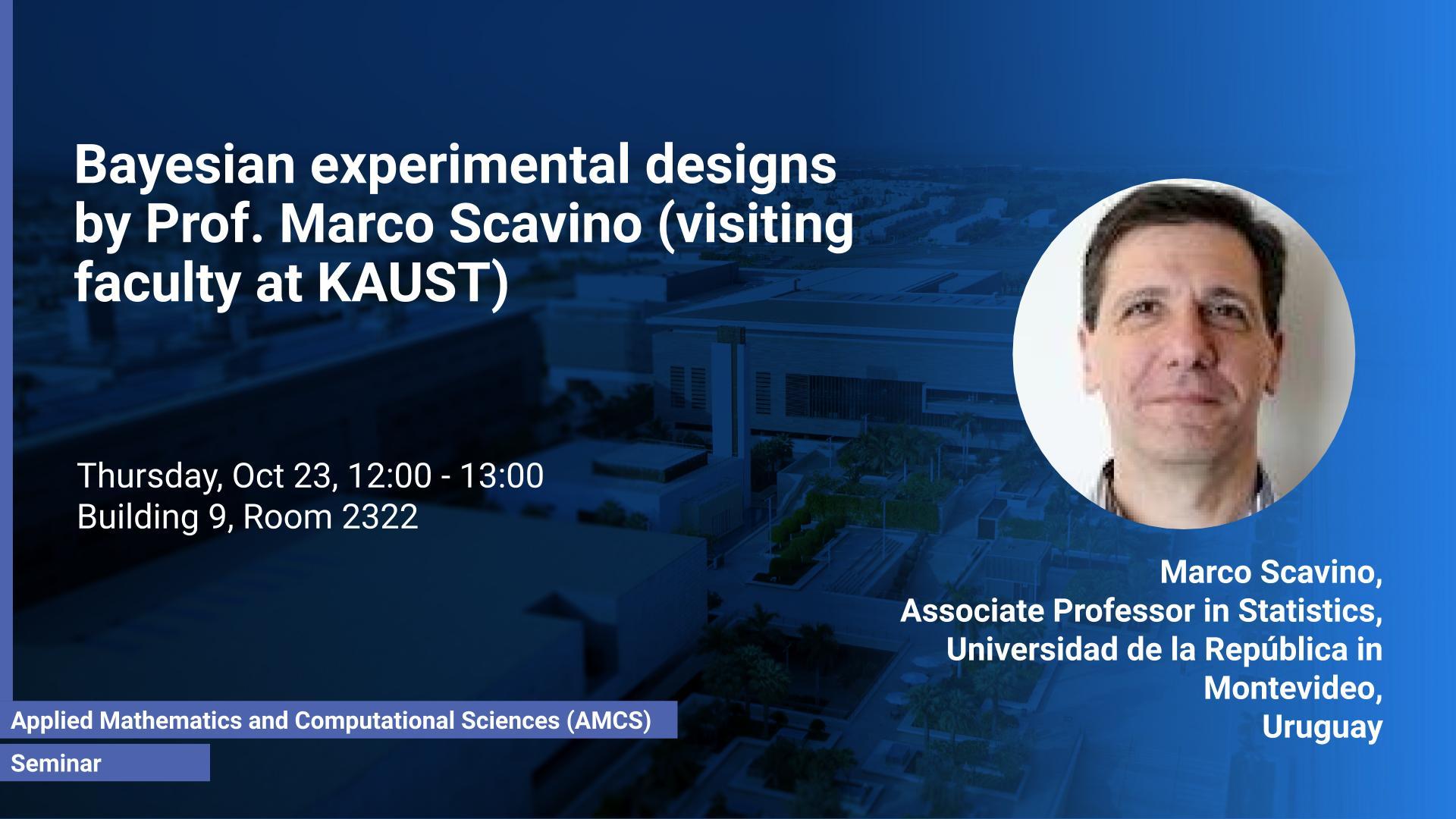Event Start
Event End
Location
Abstract
In this talk, I will describe the main features that characterize a Bayesian framework for experimental design. A special emphasis will be devoted to the description of how to measure the information, conveyed by an experiment, about the unknown parameters of the statistical model used to describe the data uncertainty. This question has been addressed by D. V. Lindley (1956) who first proposed, on the basis of Shannon’s ideas developed into the theory of information in communication engineering, the use of the so-called expected information gain. Once such a measure is introduced, its estimation and maximization with respect to alternative setups will provide a valuable orientation toward the planning of future experiments. Some recent results concerning fast evaluation techniques of such measure based on the Laplace’s approximation, developed in joint works with Q. Long, R. Tempone and S. Wang as part of our activity at the KAUST SRI Center for Uncertainty Quantification in Computational Sciences and Engineering, will be discussed and illustrated when applied to nonlinear experimental models.
Brief Biography
Marco Scavino is a visiting Faculty at the KAUST SRI Center for Uncertainty Quantification in Computational Sciences and Engineering. He graduated with full honours in Statistics and Demography at the Università "La Sapienza" Rome in 1995 and earned a doctorate in Statistics from the University of Padova in 1999. A permanent Associate Professor in Statistics at the Universidad de la República in Montevideo, Uruguay, he coordinated its Master in Mathematical Engineering program from February 2009 to August 2013, and developed the curriculum in statistics, probability and mathematics for the mentioned Master degree, the degree in Statistics and the Master in Bioinformatics. Until 2005 he served as an expert on statistical methods in the Ministry of Economy and Finance, Italy. Between 2008 and 2013 he has been a consultant in mathematics and statistics in various governmental projects in Uruguay, among them we can cite fishery management and the development of policies for kidney transplants. His scientific interests are focused on the rigorous application of statistical techniques to assess the quality and predictive power of probabilistic models, and to extract efficiently the information made available through experimental data.
Refreshments: Pizza and soft drinks will be available at 11:45am

